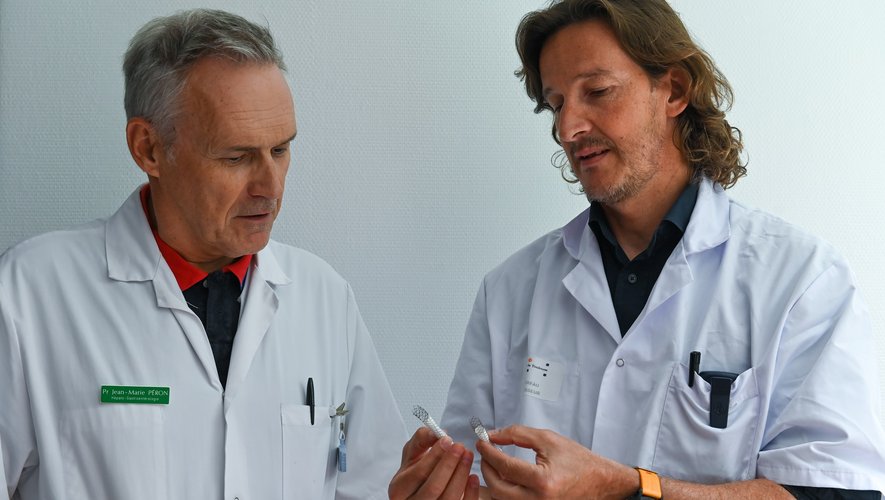An interventional radiology technique has been developed by Toulouse specialists in liver disease. It is now a reference in the management of portal hypertension, the main complication of cirrhosis of the liver.
Cirrhosis, a serious liver disease, begins in 80% of cases without symptoms, which makes the complications associated with it more difficult to manage. Among the most common are liver cancer, portal hypertension and hepatocellular insufficiency.
Read also :
Liver diseases: screening, symptoms, treatment,… we tell you everything about serious forms
When portal hypertension occurs, it is manifested in particular by ascites: the presence of a large quantity of water in the belly, which must be punctured, and by vomiting of blood. To treat it, the hepatologists of the University Hospital Center (CHU) of Toulouse have developed a very effective non-invasive radiology technique which is now a reference worldwide.
“The TIPS (transjugular intrahepatic porto-systemic) is a stent that we place through a jugular vein and which allows us to treat, including the most fragile patients, without morbidity”, describes Professor Christophe Bureau. This technical innovation introduced in the 90s, has since seen its development improved by the teams of the Toulouse University Hospital, thanks to the advent of new stents which no longer clog and above all thanks to better indications for patient choice. .
1200 patients treated in France
“One of the keys to success lies in the choice of compatible candidates and we recommend this stent placement for patients with portal hypertension but without heart failure, which is a major contraindication”, specifies Professor Christophe Bureau. Similarly, the risks of encephalopathy, which remains one of the complications of cirrhosis, favored by TIPS, must be assessed, he explains.
Currently 1200 patients are treated by TIPS each year in France, including 500 in Toulouse which is an expert centre. “In France around fifty centers practice this care, unfortunately, we estimate that half of the patients who should benefit from it, are not addressed or too late, for lack of enough specialists and trained specialists”, deplores Pr Bureau .

